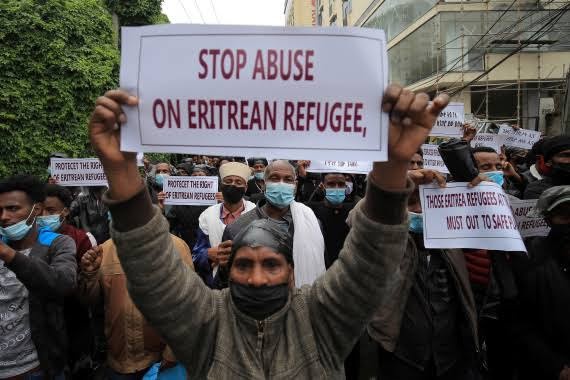Tigray Conflict: UN Expert Says Attacks On Eritrean Refugees Must Stop
A United Nations expert says Ethiopian and Eritrean authorities should stop attacks on refugees and also take measures to protect them under humanitarian law.

Mohamed Babiker, the United Nations Special Rapporteur on the situation of human rights in Eritrea, has condemned attacks on Eritrean refugees trapped in Ethiopia’s Tigray region who are targeted by both parties to the conflict.
“Since the conflict began, I have received many credible allegations of Eritrean refugees being singled out, targeted and victimised by both the Federal Government of Ethiopia and government-allied Eritrean troops, and by forces affiliated with the Tigray People’s Liberation Front,” Babiker said.
According to him, the UN Refugee Agency, UNHCR, expressed concern about the condition of 24,000 Eritrean refugees in Mai Aini and Adi Harush camps, who have been cut off from humanitarian assistance and are facing attacks from authorities and militants.
Since Nov. 2020, Ethiopia has become home to nearly 100,000 refugees from neighbouring Eritrea before the conflict broke out in Tigray. Babiker emphasised on the plight of Eritrean refugees and called for their protection through communications to the Ethiopian and Eritrean authorities, and during his interventions at the Human Rights Council in February and June.
The situation has continued to deteriorate, he said, with fighting spreading to new areas and a recent escalation of violence against Eritrean refugees. “An estimated 80,000 refugees would now be at imminent risk in the Tigray and Afar regions,” Babiker said.
“I am extremely alarmed at reports of attacks and killings, sexual violence, beatings of Eritrean refugees and looting of camps and property. This violence directed at refugees must stop.”
He added that recent armed confrontations had displaced thousands of people in the Afar region, which hosts an additional 55,000 Eritrean refugees. According to him, in Jan., Hitsats and Shimelba refugee camps were destroyed while some 20,000 refugees were displaced and hundreds went missing.
“International humanitarian law has long recognised the need to protect civilians caught in conflict, today I specifically call on all sides to respect the 1951 Refugee Convention,” Babiker said.
He urged all armed actors to respect the neutrality of refugee camps, allow humanitarian actors to provide urgently needed assistance, and facilitate the relocation of refugees to safer areas. “This horror must stop. All civilians, including refugees, must be protected from hostilities.”
Support Our Journalism
There are millions of ordinary people affected by conflict in Africa whose stories are missing in the mainstream media. HumAngle is determined to tell those challenging and under-reported stories, hoping that the people impacted by these conflicts will find the safety and security they deserve.
To ensure that we continue to provide public service coverage, we have a small favour to ask you. We want you to be part of our journalistic endeavour by contributing a token to us.
Your donation will further promote a robust, free, and independent media.
Donate HereStay Closer To The Stories That Matter




